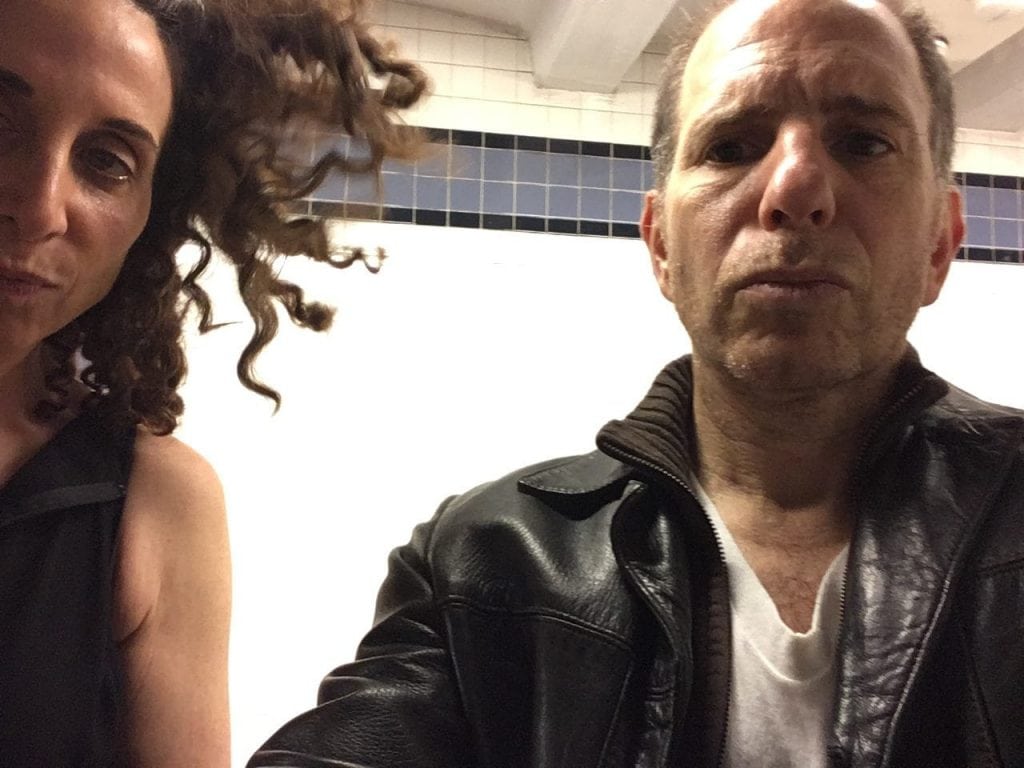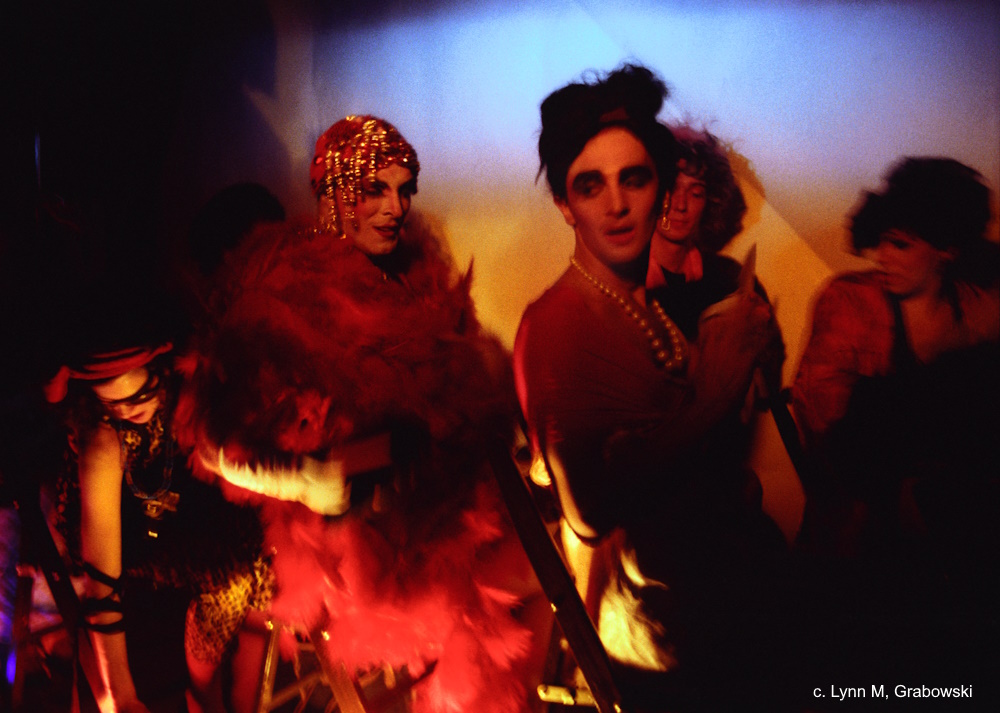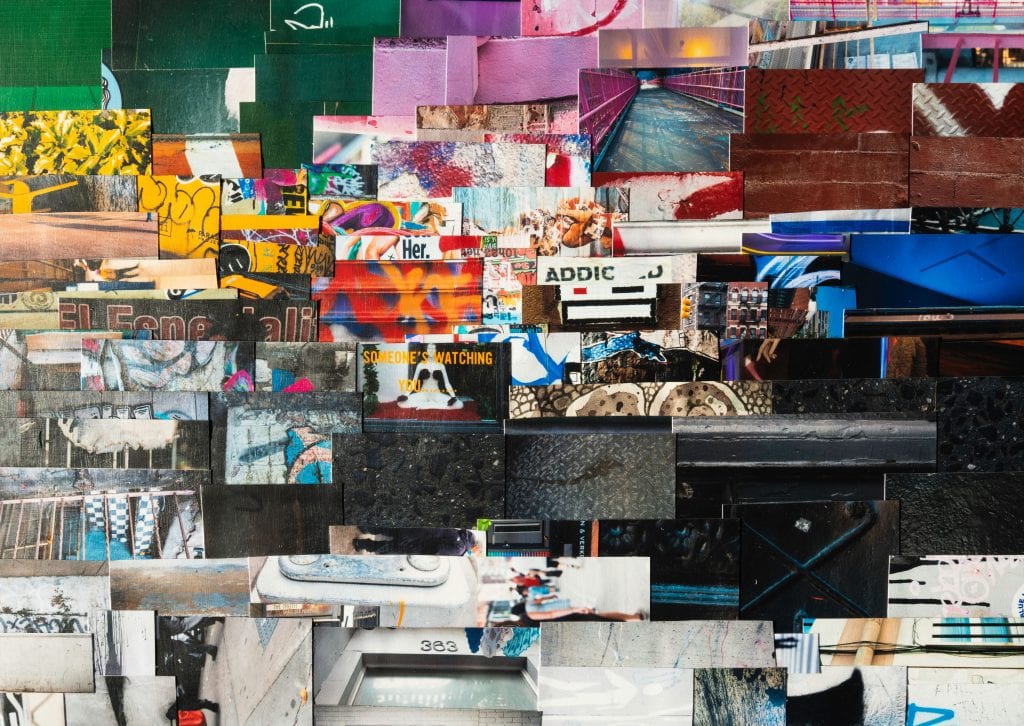
We were walking up First Avenue and I saw a girl at an ATM outside a bar, an East Village dungeon with a famous jukebox and black walls and every surface plastered with band stickers—one of those places that are always new for someone, as New York is, even if it’s so old for the rest of us. I could tell she was visiting and I caught a buzz of how it was for her—how she felt to be out on the Lower East Side on one of her few nights here—because even if she’s here for a few weeks, she’s in a fantasy of living here but counting the days. I knew the night was tinted, for her—the night itself, the air of it. I was walking through a void of unconnected things that for her were connected by a smear of excitement and novelty and alcohol and hope: the East Village existed for her in a matrix of how she felt about it.
On Christmas Eve when I was a kid we went to my Aunt Rozie’s. She was a cousin but everyone called her Aunt. She and her family lived out in the wilderness somewhere. I could never find the place again, except in my head. It belongs to the memory of my imagination. I only saw it at night in the snow, some suburb of the North Pole. There’d be kids tearing across the linoleum while the men played cards in the basement beside a table of pizzelle and sliced oranges and mostaccioli and liquor, and around midnight one of them would sneak out to dress up as Santa Claus. There was a rumor of sleighbells from outside, and a pounding at the upstairs door, and he came stomping in out of the red and blue snow, jingling and booming with laughter. It was terrifying. You were awestruck in his presence, blinded by the light of someone’s home-movie camera, captured in the glare of your first major spiritual experience. He was our Moses, thundering with judgment, naming our souls.
The ride home was different. I shivered in the drafty Impala, chilled with anticipation of tomorrow and the mystery of the enormous night. The adults were tired, the hour was late, the night was clear, with bluewhite snow along the freeways and bluewhite stars in the sky. I didn’t know much about night, almost nothing of the night between places, I was just a pair of eyes in the backseat, taking it all in.
Eventually we glided off the freeway to the Southside to drop off my Aunt Marie and my grandmother. We drove past a row of houses and small apartment buildings. The neighborhood was dark except for a few Christmas lights. In an upstairs window of a wooden frame house an orange electric wreath. In an apartment window a red electric candle, and then some strings of blue lights from a funeral home across the snow to a tree in their yard. I had no idea that this was a poor neighborhood or a rough neighborhood or anything. To me, the lights were evidence of the Christmas spirit at large—that everyone was in on it—proof of the unity of people everywhere. The lights conspired to color the night—to warm it, even.
Later I moved to the Southside and drove down West 14th past the same lights at Christmas. But instead of reaching to color the night they just made it darker. Now they were evidence of people’s isolation. To me they were proof that everyone was an outpost in the void.
A long time ago I was telling Sheelagh about the two perceptions. She said, “Which one is true?”
This is all part of an old discussion with myself. Particle or wave? Is there something between things? If there’s something between things, what is it? If everything’s connected, connected by what?
Twenty years ago, I didn’t have an answer. Now I do. There’s nothing. Life is entirely imaginary. There’s no warmth in the void but what people supply.
But we do supply it.
Biography
Mike DeCapite grew up in Cleveland, Ohio, and started writing his first novel, Through the Windshield—”a Whitmanesque hymn” to that city (Jocko Weyland, Rain Taxi) — after moving to London in 1985. DeCapite finished the book in New York, and excerpts first appeared in three issues of Richard Hell’s CUZmagazine in the late ’80s. Through the Windshield picked up a small cult reputation by way of published excerpts, readings, and word of mouth, and DeCapite published it with his own Sparkle Street Books in 1998. In his review of Through the Windshield for the Austin Chronicle, Harvey Pekar called it “one of the better American novels of the past several years.” From 1993 to 2005, DeCapite lived in San Francisco, where he worked on a second novel, RUINED FOR LIFE!, excerpts of which have appeared in 3:AM Magazine and Sensitive Skin. DeCapite’s short story “Sitting Pretty” appeared as a CUZ Edition in 1999, and was then included in The Italian American Reader (William Morrow 2003; HarperCollins 2005). During 2003 and 2004, he wrote Radiant Fog, a column for angle magazine. In 2005, DeCapite returned to New York. In 2012, he published the chapbook Creamsicle Blue (“a spectacular piece of writing,” Karen Lillis @ Karen the Small Press Librarian). He followed it in 2013 with Radiant Fog, a collection of personal essays. DeCapite lives in New York.



